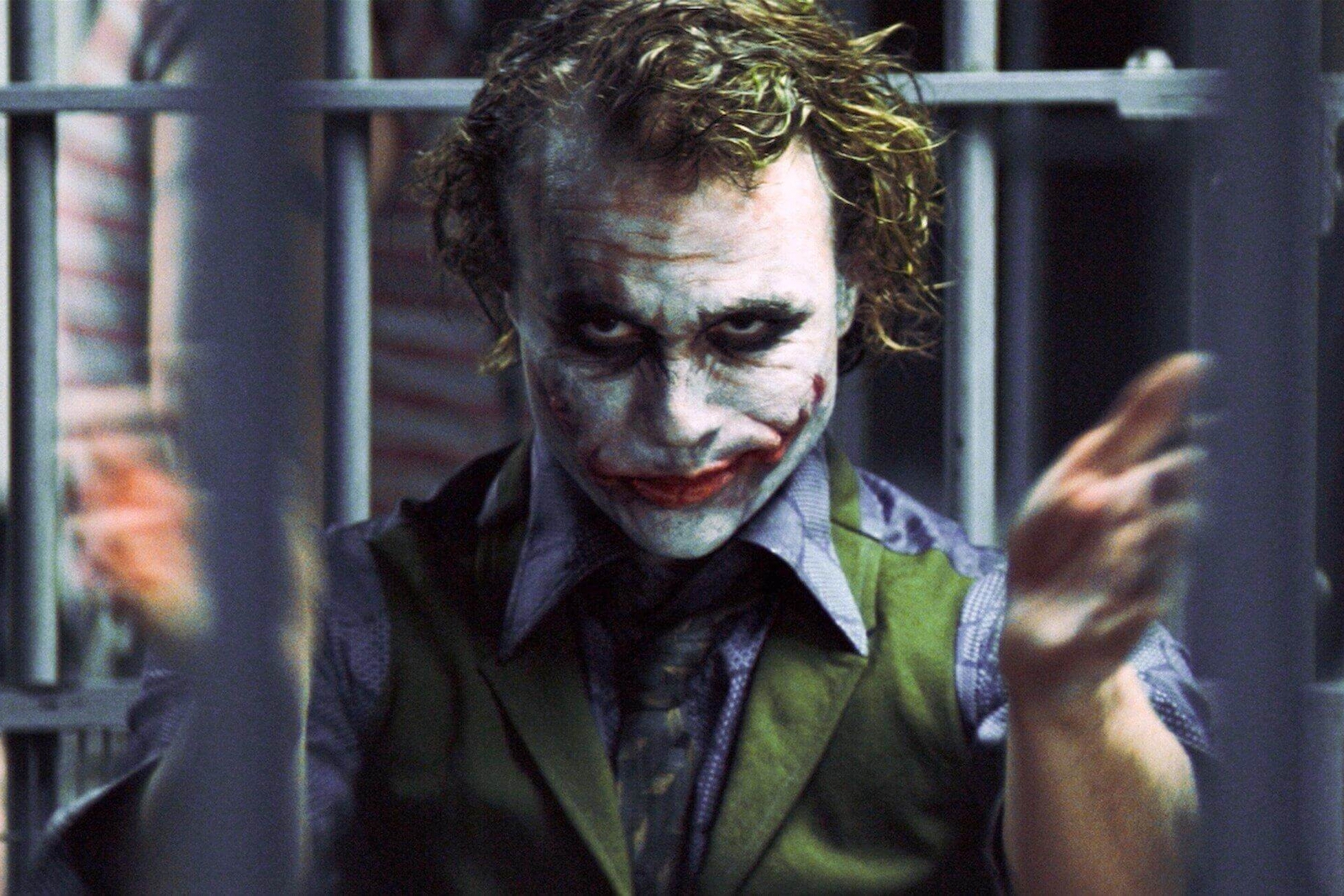
An Appreciation of Heath Ledger’s Early Movie Roles
If the 21st century had a James Dean, it would be the late, great Heath Ledger. It’s hard to believe that it has been 14 years since his tragic, untimely passing at the age of 28, as well as since his Oscar-winning performance as the Joker in The Dark Knight captivated audiences the world over. Yet, Ledger was also capable of profound, sensitive work, such as his masterful performance in the landmark film, Brokeback Mountain (2005).
I often find myself wondering what kinds of roles Ledger would be taking on today. Would he be adding his weight by starring as the lead role in some auteur’s intense festival-circuit drama, or would he capitalize on his post-Dark Knight bona fides with a major role in the Marvel Cinematic Universe or other big blockbuster franchises? I could see him very easily succeeding on long-form dramatic television, perhaps akin to Matthew McConaughey’s so-called “McConnaissance” around the time he was starring in HBO’s True Detective.
Ledger still looms large for millennials of a certain age who got to see him grow up and blossom into a legendary actor over the course of a decade. Before he was a repressed gay cowboy or Batman’s chaos-loving arch-nemesis, he wowed an entire generation with effortless charisma in roles as varied as a rebellious high-schooler, a Revolutionary War soldier, and a medieval knight. It may be anecdotal, but many friends my age that I’ve talked to claimed to have had an early Heath Ledger movie that was adopted by them and their family. One friend once went so far as to claim a theory that this was because all the moms’ thought Ledger was cute and relished the time spent watching him.
As sad and difficult to deal with as Ledger’s passing was, he left behind a unique cinematic legacy beyond his two most acclaimed roles in Brokeback Mountain and The Dark Knight that still showcase his burgeoning talent and devotion to fleshing out characters, and all these films all undoubtedly benefit from his presence. Here are some of the ones I look back on with particular fondness.
10 Things I Hate About You
One can very easily recite their favorite teen movies of the ’80s, and this is in no small part due to the late John Hughes. From the emotional relatability of The Breakfast Club to the joie de vivre of Ferris Bueller’s Day Off, Hughes channeled something universal into his classic ‘80s teen movies. So, did the ‘90s suffer for a lack of John Hughes? After all, the movie that seemed to define him the most in the ‘90s was Home Alone, one whose smashing success ended up predicting a decade in which Hughes primarily wrote and produced family-friendly movies like Dennis the Menace, Flubber, and Baby’s Day Out.
As such, not a lot of ‘90s teen movies seem to capture the spirit of those legendary John Hughes works. That is, with one exception: 10 Things I Hate About You. The movie is a contemporary retelling of Shakespeare’s The Taming of the Shrew set in a high school in suburban Seattle. Cameron, played by Joseph Gordon-Levitt while he was still starring on 3rd Rock from the Sun, is the new kid in town. He gets shown around the school by his new buddy Michael, played by David Krumholtz at the end of a decade that included his star-making turns in Addams Family Values and The Santa Clause. Cameron then immediately falls for Bianca Stratford, played by Larisa Oleynik just after wrapping her titular role on Nickelodeon’s The Secret World of Alex Mack. I mention all of this because, as difficult to imagine as it may be, Ledger was the least famous of the film’s teen stars when the film was released.
However, before Cameron can start pursuing Bianca, he must deal with a rule imposed by Bianca’s strict father (Larry Miller): she can only date when her older sister Kat (Julia Stiles in her breakout role) does. Kat is an anti-social misanthrope who loves intense rock music more than the bubble gum or Spice Girls-inspired pop of the late ‘90s, perhaps owing to living in a Pacific Northwest that had already launched the likes of Nirvana, and the “riot grrrl” movement. To remedy this, Cameron devises a way to pay the off-putting, strange, somewhat-of-an-outcast Patrick Verona (Ledger) to take Kat out, in order to remove any obstacles in his pursuit of Bianca.
Patrick is the subject of many a rumor at the school. (“I heard he ate a live duck once.”) He can seem unusual or foreign at times, with his smoking habit and Ledger utilizing his natural Australian accent. Yet, Ledger provides typical charm in the role, and there’s an easiness to his character. Some moments, such as when he serenades Kat to “Can’t Take My Eyes Off You” on the school’s football field with help from the marching band, help endear him to the audience. It is the highlight of the entire movie. There’s also an underlying maturity to Patrick, such as when he tells a disheartened Cameron “don’t let anyone ever make you feel like you don’t deserve what you want” in the aftermath of a party where Bianca seemed more interested in the school’s bad boy.
The movie came out at an interesting time when Hollywood was flooded with other similarly-themed teen movies. Roger Ebert even mentioned in his review that “I’m trying to remember the last movie I saw that didn’t end with a high school prom.” Yet, not many of those other teen movies are still discussed today, but 10 Things I Hate About You most certainly is. It was Ledger’s first Hollywood production after the studio had already auditioned the likes of Josh Hartnett and Ashton Kutcher for the role. According to the film’s director Gil Yunger, when Ledger auditioned, “already he had the energy and that soulful sexuality of a movie star. I wanted to see how nimble he could be if I asked him to change tone with a few lines from the script. He was great. When he walked out the instant the door closed, we all knew.”
A great, winning and very funny script, along with an amazing soundtrack, probably most distinguishes 10 Things from its fellow ‘90s peers, but the movie is in no small part aided by Ledger’s performance. The young cast, as they have all subsequently admitted, really gelled together. I think of a delightful scene where Stiles’ Kat and Ledger’s Patrick play paintball together. It’s refreshing and different in a late- ‘90s teen media environment that seemed defined by the schmaltz and emotional tumult of then-contemporary TV shows like Dawson’s Creek. Even now, just like those John Hughes classics, the whole movie feels timeless while never losing its distinctly late- ‘90s aesthetic.
The Patriot
Roland Emmerich emerged at a time when audiences were eating up big, bombastic, pro-America spectacle. In this sense, he is not unlike his fellow blockbuster director, Michael Bay. Both love sci-fi plots and big explosions, with enough jingoistic patriotism to make Top Gun blush. While Emmerich defined himself with a massive movie about an alien invasion that derived its name, release date, and timeframe from the American day of independence, he decided to double down on his adopted homeland to tell a story about the American Revolution itself.
The result of this was, of course, The Patriot, a historical drama starring Mel Gibson as Benjamin Martin, a veteran of the French and Indian War who wishes to live a quiet life with his children on his plantation in South Carolina until events force his participation in America’s war for independence. Ledger plays Gabriel Martin, Benjamin’s oldest son who defies his father’s wishes and joins the Continental Army.
Ledger has a more limited, supporting role in this film, as his character is the one who has already joined the patriot cause and even seen George Washington himself in the flesh at Valley Forge by the time his father gets around to fighting for the Continentals. However, he still displays the boyish charm apparent in 10 Things, particularly as he courts a young woman named Anne (Lisa Brenner) and even has to participate in a “bundling bed,” a colonial tradition meant to prevent two lovers from engaging in premarital sex.
Gabriel’s untimely demise at the hands of the film’s antagonist Colonel William Tavington (Jason Isaacs) serves as motivation for Benjamin to strike Tavington down once and for all, and Gabriel’s spirit looms large for the remainder of the film. The Patriot was my family’s adopted early Heath Ledger movie when I was growing up, my mother even recounts a story where I made a scene at Blockbuster when she rented it because it was rated R. While The Patriot seems to want to do for the American Revolution what Mel Gibson had already done for William Wallace and the First War of Scottish Independence in Braveheart just a few years before, Ledger adds an element that even Braveheart lacked: a meaningful father-son relationship that drives the narrative and reinforces the themes of family and commitment.
A Knight’s Tale
The success of Ridley Scott’s Gladiator in 2000 revitalized the sword-and-sandals epic after decades of dormancy. Even pirate movies would have a comeback thanks to the blockbuster Pirates of the Caribbean in 2003. But another genre depicting centuries past had a brief moment to shine in 2001, thanks to A Knight’s Tale.
Loosely based on and taking its name from a segment of Geoffrey Chaucer’s The Canterbury Tales, A Knight’s Tale focuses on Ledger’s William Thatcher, who works alongside Roland (Mark Addy, who would go on to play King Robert Baratheon in Game of Thrones) and Wat (reliable character actor Alan Tudyk of Firefly and Dodgeball fame) as a squire for a knight in 14th century Europe. When their master unexpectedly dies, William disguises himself as the late knight for a jousting competition that he eventually wins.
This gives William the idea to fake the persona of “Sir Ulrich von Liechtenstein” to use his jousting skills to win fame, money, and even the attention of a high-born lady named Jocelyn (Shannyn Sossamon). As “Sir Ulrich” starts to win competitions, he earns the respect of Edward the Black Prince (James Purefoy) and even encounters Geoffrey Chaucer (Paul Bettany) himself, who becomes Sir Ulrich’s ring announcer and herald. However, the devious Count Adhemar (Rufus Sewell) seems determined to undermine Sir Ulrich’s success at every turn, and the movie concludes with their climactic confrontation.
What A Knight’s Tale is above all else is fun, as emphasized by the music choices. The film’s opening credits are to Queen’s “We Will Rock You,” and other music by the likes of David Bowie, AC/DC, Thin Lizzy, and others make this the only medieval times-set movie I can think of that utilizes classic rock staples. Unlike the more ensemble nature of either 10 Things or The Patriot, A Knight’s Tale is definitely Ledger’s movie, although he is buoyed by the strength of his supporting cast. Unlike the historic melodrama of The Patriot, there are downright hilarious moments in A Knight’s Tale, and Ledger effectively threads that needle of being both an action and comedy star. Having become more of a cult film in the two decades since its initial release, A Knight’s Tale has become one of the most beloved movies in Ledger’s filmography and is worth seeking it out if you haven’t already seen it.
